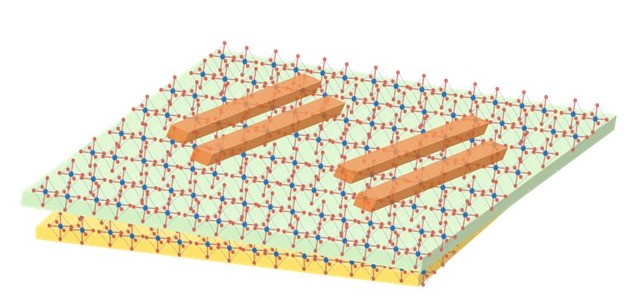NWO M-2 grant for energy-efficient computer hardware
The Netherlands Organisation for Scientific Research (NWO) has awarded an Open Competition Science-M grant to Prof. Tamalika Banerjee and Prof. Bart Kooi of the Zernike Institute for Advanced Materials (Faculty of Science and Engineering, UG). They will receive an M2 grant of EUR 750,000 for research contributing to the development of energy-efficient computer hardware.
M grants are intended for innovative and high-quality research with scientific urgency. An M-2 grant is awarded to projects led by two researchers and runs for five years.
New computing paradigms
To cope with the exponential growth of energy use for ICT applications, there is an urgent need for new computing paradigms based on innovative material systems. Banerjee and Kooi's research focuses on applying quantum materials in new energy-efficient computing hardware for amongst others Intel’s computing device MESO and for other in-memory and edge computing applications.
The road ahead
To achieve this, the researchers will explore a novel approach in which individual nanolayers of a multiferroic oxide are stacked with a controlled twist to generate moiré patterns. Using advanced techniques, they will study the resulting magnetoelectric properties and atomic structures. These include magnon transport and ferroelectric displacements at the atomic scale. This is expected to open a new direction for the design and engineering of moiré devices using Twistronics.

For an overview of the latest M-2 awards in the Science domain, visit the NWO website.
| Last modified: | 26 August 2024 3.41 p.m. |
More news
-
03 April 2025
IMChip and MimeCure in top 10 of the national Academic Startup Competition
Prof. Tamalika Banerjee’s startup IMChip and Prof. Erik Frijlink and Dr. Luke van der Koog’s startup MimeCure have made it into the top 10 of the national Academic Startup Competition.
-
01 April 2025
NSC’s electoral reform plan may have unwanted consequences
The new voting system, proposed by minister Uitermark, could jeopardize the fundamental principle of proportional representation, says Davide Grossi, Professor of Collective Decision Making and Computation at the University of Groningen
-
01 April 2025
'Diversity leads to better science'
In addition to her biological research on ageing, Hannah Dugdale also studies disparities relating to diversity in science. Thanks to the latter, she is one of the two 2024 laureates of the Athena Award, an NWO prize for successful and inspiring...
